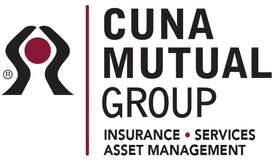|
by Micheal Herman, CUNA Mutual Group
While the economic impact of COVID-19 on individuals and families has been about as divergent as possible, most people experienced a financial awakening of one form or another. Whether it was the financial devastation of a job loss or the influx of savings from going nowhere and doing nothing, unprecedented times forced most Americans to confront entirely new household economics. Anyone who’s had to adjust a family budget knows the exercise conjures up the need to choose. Most often, decisions around budgeting come in the form of trade-offs: Do we drive a new car and cook meals at home or drive used and enjoy the occasional meal out? Obviously, there are Americans facing much more difficult, even unfathomable, trade-offs, like the choice between food or shelter, medicine or clothing. Those are circumstances no one should have to face. For the financially well, however, trade-offs are a manageable way of living within an individual’s or family’s means. Other budgeting decisions come in the form of risk assessment. Insurance is a prime example. How likely is it that our home will sustain storm damage? How much life insurance makes sense based on our ages and the family’s income needs? These are the basic budgeting choices families have been making for decades. But during the pandemic, even the basic became complex. As the day-to-day grind came to a grinding halt, we were faced with a whole new set of choices, risks and worries. Seemingly overnight, trade-off and risk-mitigation decisions we’d grown accustomed to making were upended. This left many, including credit union members, understandably anxious about their financial situations. One way we saw that anxiety live out was a significant uptick in consumer interest in taking a protective stance against sudden income changes. Research conducted by CUNA Mutual Group found that, as different economic stressors came on the scene, more people looked closer at financial protection products, such as guaranteed asset protection (GAP), mechanical repair coverage (MRC) and credit and debt protection. Research CUNA Mutual Group conducted before the global COVID-19 outbreak, indicated credit union member awareness of and interest in financial protection products was low. Among members with a recent loan, less than half (48 percent) were very or somewhat familiar with financial protection options. Just about one quarter (27 percent) said they weren’t familiar at all. The three main drivers of low interest levels pre-pandemic were: 1) a perception the cost was too high, 2) a lack of perceived need for financial protection; and 3) the member hadn’t been offered a financial protection product. All that changed in 2020. As members dealt with entirely new financial realities, their interest in taking protective action grew, and it grew fast. Research conducted in May, August and November 2020 showed member interest in loan protection growing from 69 percent to 76 percent in less than seven months. What’s more, CUNA Mutual Group observed a shift in mindset as credit union member perception of financial protection turned much more positive than in prior years. More than half (53 percent) of members said they considered buying financial protection insurance to be good financial planning, a sentiment that increased steadily from May to November 2020. If your credit union is thinking through a new or enhanced product strategy in light of COVID’s impact on members, financial protection products may fit the bill. Three engagement strategies you might consider are below. Make protection products available to members. The best options help to offer critical peace of mind to vulnerable members and can help improve member/credit union relationships. As a side benefit, protection products can help generate non-interest income. Use a multi-channel approach that prioritizes digital. Most protection products are tied to a loan; the average member probably doesn’t know they exist. Embed protection product options into your digital banking experience. 121 Financial Credit Union did. Since integrating the AdvantEdge Digital Lending solution into the credit union’s website, more members are opting to add GAP to their car loans. The lending team attributes much of this to the transparency and ease of navigation offered by the revamped digital lending experience. Train staff how to introduce members to protection products. Credit union staff are exceptional member advocates and understandably leery of products that don’t offer clear benefits. Ensure that everyone is well-versed in protection product benefits and trained to have consultative conversations with the right members at the right time. Living out the people-helping-people promise of credit unions has never been more important. Regardless which end of the financial-impact spectrum members find themselves on, most everyone will continue to navigate unrecognizable terrain for the foreseeable future. This is when credit unions shine. Leaders within the movement recognize, better than most, how even small tweaks to a credit union’s approach can help to set thousands of people on a path to financial wellness. As your credit union thinks through the strategic tweaks that make the most sense for your members, consider giving financial protection products a second look. Micheal Herman is the senior vice president of product innovation and technology at CUNA Mutual Group’s AdvantEdge Digital. CUNA Mutual Group is the marketing name for CUNA Mutual Holding Company, a mutual insurance holding company, its subsidiaries and affiliates. Corporate headquarters are located in Madison, Wisconsin. We are a financially strong insurance and investment company. For generations, we have partnered with credit union leaders to protect and grow their businesses; and help people plan, protect and invest for their future. We offer commercial and personal insurance products; lending and payment security solutions; and retirement, investment, data and analytics, and marketing services. Please contact George McDonald, DakCU Chief Officer of Strategic Services for more information. Comments are closed.
|
The MemoThe Memo is DakCU's newsletter that keeps Want the Memo delivered straight to your inbox?
Archives
July 2024
Categories
All
|
|
Copyright Dakota Credit Union Association. All Rights Reserved.
2005 N Kavaney Dr - Suite 201 | Bismarck, North Dakota 58501 Phone: 800-279-6328 | [email protected] | sitemap | privacy policy |






